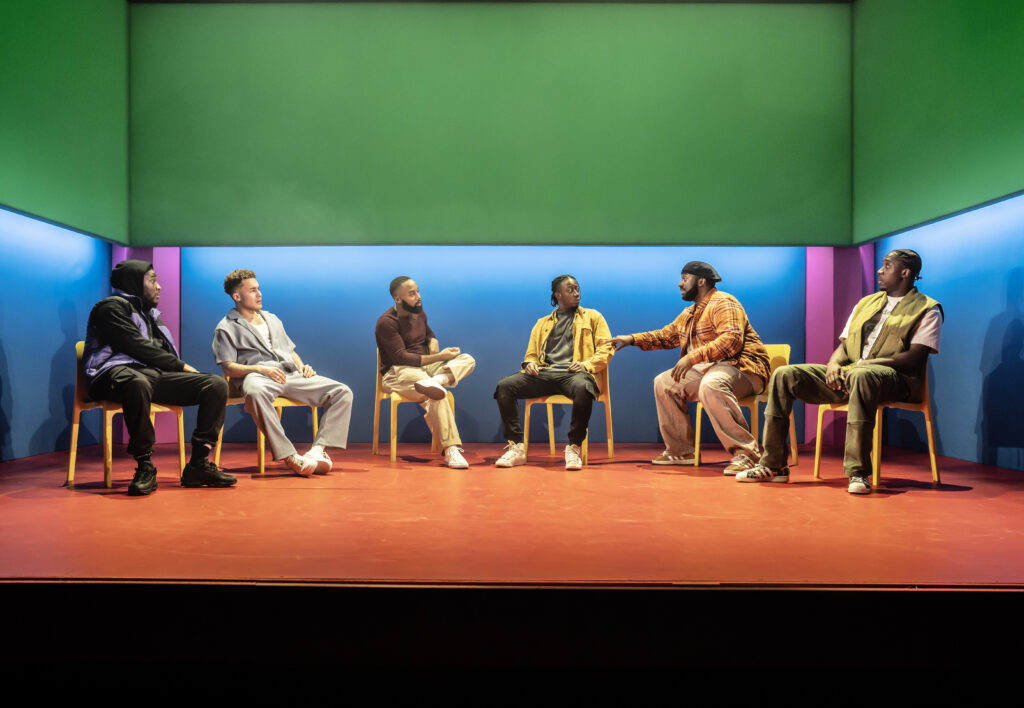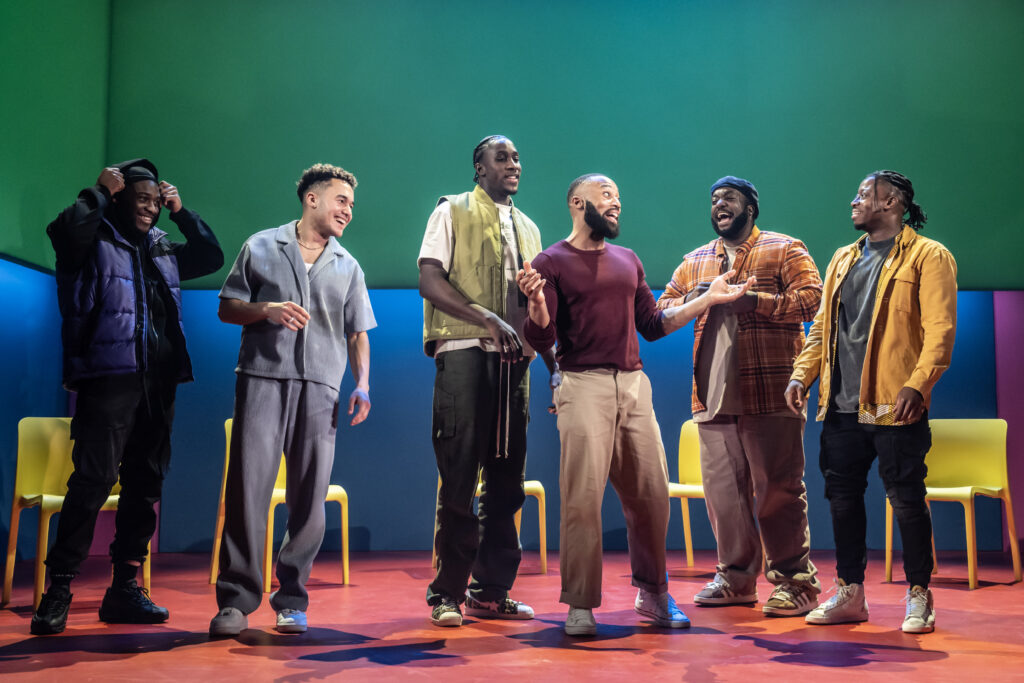
Review by Katie Shaw
Walking into the Garrick Theatre on Friday night, I knew very little of what to expect from this play. I knew it would be a hard-hitting play, but I had no idea the impact and imprint it would have on me. Leaving the Garrick Theatre later that evening, it was clear to see why Ryan Calais Cameron’s exceptional play is on its second run on the West End and has garnered numerous five-star reviews.
Eye opening, thought provoking, and peppered with laugh out loud moments, this play is certainly not one to be missed. Set in a group therapy session, the six-man cast gave stellar performances as they candidly walk us through their experiences of growing up as young Black boys. It offers an insight into their experience of being ostracised by society, and the ramifications that this has on their mental health. They discuss everything from first loves, to abuse, to not feeling Black enough; from their relationship with their fathers to teen knife crime, and the unrealistic expectations and social pressure to ‘be a man’ – for the alternative is to be weak.

The emotional depth explored in Calais Cameron’s phenomenal writing was brought to life by the supremely talented cast. I was blown away by the depth of each of the cast’s performances – captivated by the raw and authentic storytelling of their individual experiences growing up as a Black boy, and as a group they bring an energetic and powerful dynamic to the stage. The story is compelling, wonderfully authentic, and most of all, incredibly important and relevant. To confront the joys, dangers, and complexities that come with being a young Black man – as bound to them by a White society – through beautifully crafted poetic dialogue, perfectly witty humour and impromptu dance moves makes for a truly fantastic play.
The opening dialogue immediately confronts us with the racial microaggressions bound to young Black boys. Playing kiss chase in the school playground, a trivial memory in most minds, triggers a much more distressing recollection for these men; it is one of the earliest memories of being rejected for the colour of their skin. While they hoped to join in with this playful game, the White girls only ever chased the White boys. Moving into adolescence, the men discuss finding themselves as the token Black man in social situations, while at university and in the workplace.
They contest the use of the N word, imploring whether it invites violence from its hostile origins when their ancestors were enslaved, or if it forges brotherhood in an increasingly hostile present day. They note how White people often lock their car doors, put their phones away, and walk in the other direction when a Black man passes by. Jet remarks that being Black and queer can seem like a ‘cruel and impossible proposition’, finding his identity as a Black man almost contradicting his identity as a queer man. It is a play that is frank in confronting the realities of growing up as a Black man in a White dominated society, acknowledging the irreparable damage caused by a White centric culture.

A particularly eye-opening topic that is touched upon in this play is Black History. Midnight’s remark: ‘fuck Black History’ struck me, for when I was at school, I had never considered the wider impact of the content of the Black History curriculum – it was simply what we learnt. Rather than empowering young Black children with figures like Tariq ibn Ziyad, an Umayyad Commander who helped secure the Moorish conquest of Spain and Portugal, we continue to revisit the barbaric history and abominable tales of enslavement, wrought upon their ancestors by ‘little White men’.
Not only is it belittling, but incredibly traumatising, and the men delicately touch upon the lack of emotional support for children to process these tales of their ancestry. Calais Cameron draws comparisons between Black History that happened almost 160 years ago with the abolition of slavery in America, and Black History that happened just shy of 4 years ago, with the murder of George Floyd. Remarking that they must respond politely to police officers who run “routine checks” for fear of a knee to their neck, Calais Cameron’s exploration of this theme serves as a stark reminder of its continued relevance today.
For Black Boys is a remarkable exploration of young Black boys’ experiences, and the toll that acting tough and acting up to the stereotypes set upon Black men by a White society can have. The soft transitions and the balance between the men exchanging banter, to the serious, deeply emotional, and evocative conversations is something that was so perfectly executed by the cast and enabled the audience to have time both for contemplation and humour. It should be a rite of passage for everybody to watch this play – it is a stellar show.














